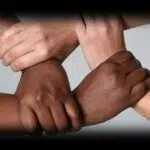The Week of Solidarity with the Peoples Struggling Against Racism and Racial Discrimination promotes global awareness every year from March 21 to 27. This week emphasizes the impact of communities and countries working toward racial tolerance and equality. It’s also a call for the repeal of laws and behaviors that promote racism. The week kicks off with the International Day for the Elimination of Racial Discrimination on March 21, commemorating a pivotal moment in South African apartheid history. In 1960, nonviolent protesters assembled in Sharpeville to protest the country’s Pass laws, which regulated slave movements. That day, police fired at the protesters, killing over 69 civilians.
History of International Week of Solidarity with People's Struggling Against Racism & Discrimination
The General Assembly approved a schedule of activities for the second half of the Decade for Action to Combat Racism and Racial Discrimination in 1979. On that day, the U.N. General Assembly voted to hold an annual week of solidarity with people fighting racism and racial discrimination, commencing on March 21. The first commemoration was held in 1980.
The International Day for the Elimination of Racial Discrimination marks the 60-year anniversary of the Sharpeville Massacre and is the start of the week of solidarity. The United Nations stated in 1966 that this day shall be a symbol of the international need to abolish racism.
South Africa’s Apartheid system has been dissolved since then. Many countries have outlawed racist laws and practices, and have established an international framework for combating racism, directed by the International Convention on the Elimination of Racial Discrimination. Even though the convention is a near-universal adoption, racism continues to affect far too many individuals, groups, and societies in all regions.
The convention primarily aims to implement appropriate steps to swiftly eliminate all forms of racial discrimination, as well as to avert and combat racist practices to promote interracial understanding and create a global community free from racial discrimination and segregation.
International Week of Solidarity with People's Struggling Against Racism & Discrimination timeline
Police open fire on unarmed protesters in South Africa.
The United Nations declares the International Day for the Elimination of Racial Discrimination.
The General Assembly approves a program of activities to be executed during the Decade for Action to Combat Racism and Racial Discrimination.
The first observance of International Week of Solidarity with Peoples Struggling Against Racism & Discrimination takes place.
International Week of Solidarity with People's Struggling Against Racism & Discrimination FAQs
What impact does racial segregation have on society?
Children growing up in more racially divided urban centers have worse economic mobility than children who grow up in less segregated areas. Racial and economic segregation in regions leads to lower wages and educational standards.
What's the difference between segregation and discrimination?
Discrimination includes treating people differently depending on their skin color and harboring prejudice against a group of people based on their racial affiliations. Segregation, on the other hand, is the separation of people based on their perceived differences.
Which state was the last to desegregate?
Eleven African American pupils desegregated Charleston County’s white schools in September 1963, making South Carolina the last state to do so.
How to Observe International Week of Solidarity with People's Struggling Against Racism & Discrimination
Read the resolution
Reading the original resolution that initiated the observance is a great way to mark this day. Familiarize yourself with the important facts concerning the week.
Participate in your community
Participate in your community and contribute to the decisions it makes concerning racial discrimination. Don’t be a spectator; play an active role.
Educate yourself
Study the impact of racism across the globe. Learn how it has evolved and how the public reaction has shaped its growth.
5 Important Facts About The Effects Of Racism
Targeted demographic
Over one-third of unarmed civilians killed by police in the U.S. is Black.
Racism in churches
In the early 1900s, some U.S. churches hung pinewood and a comb over their entryway and only allowed admittance to people whose skin tone was lighter than the pinewood and could use the comb on their hair without it snagging.
Death row
As per the Death Penalty Information Center, since 1973, over 53% of 185 inmates exonerated from death row have been Black.
Exonerations
Since 1989, over 1,471 Black people have been exonerated, according to the National Registry of Exonerations.
Police misconduct
According to the National Registry of Exonerations, cases where Black people were cleared from a wrongful murder charge, are over 22% more common than the cases involving a similarly accused white defendant.
Why International Week of Solidarity with People's Struggling Against Racism & Discrimination is Important
It ends marginalization
By focusing on racial equality, we can develop a framework, techniques, and resources. These may be used to address other forms of marginalization in society.
It heals our communities
Racial diversity has various advantages, including greater academic performance, stronger group dynamics, and favorable long-term results. Each is critical to the development of social cohesion and communal well-being.
It drives creativity and innovation
Every culture and every individual has a unique perspective. Moreover, each group, nationality, and individual has distinctive information, opinions, and viewpoints. When all of these varied perspectives are combined, wonders can happen.
International Week of Solidarity with People's Struggling Against Racism & Discrimination dates
| Year | Date | Day |
|---|---|---|
| 2026 | March 21–27 | Saturday–Friday |
| 2027 | March 21–27 | Sunday–Saturday |
| 2028 | March 21–27 | Tuesday–Monday |
| 2029 | March 21–27 | Wednesday–Tuesday |
| 2030 | March 21–27 | Thursday–Wednesday |




















































